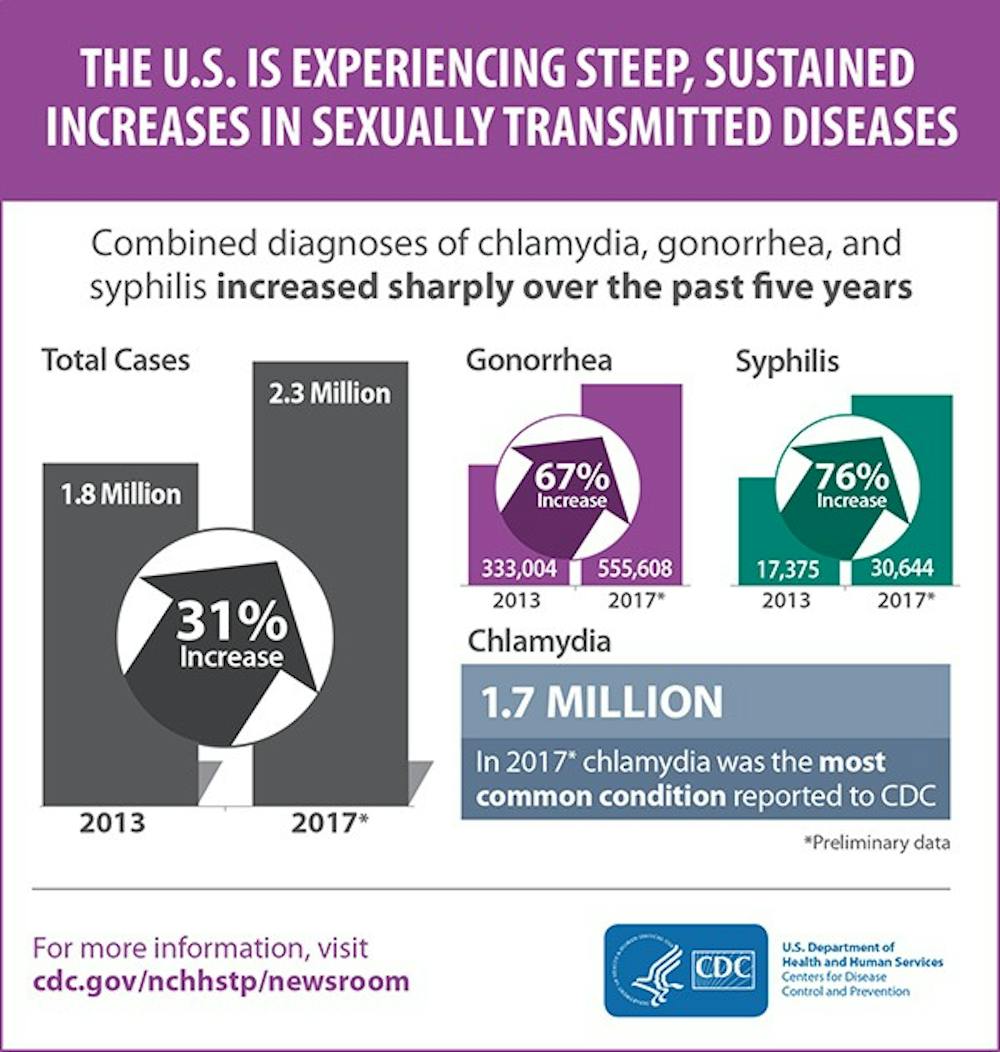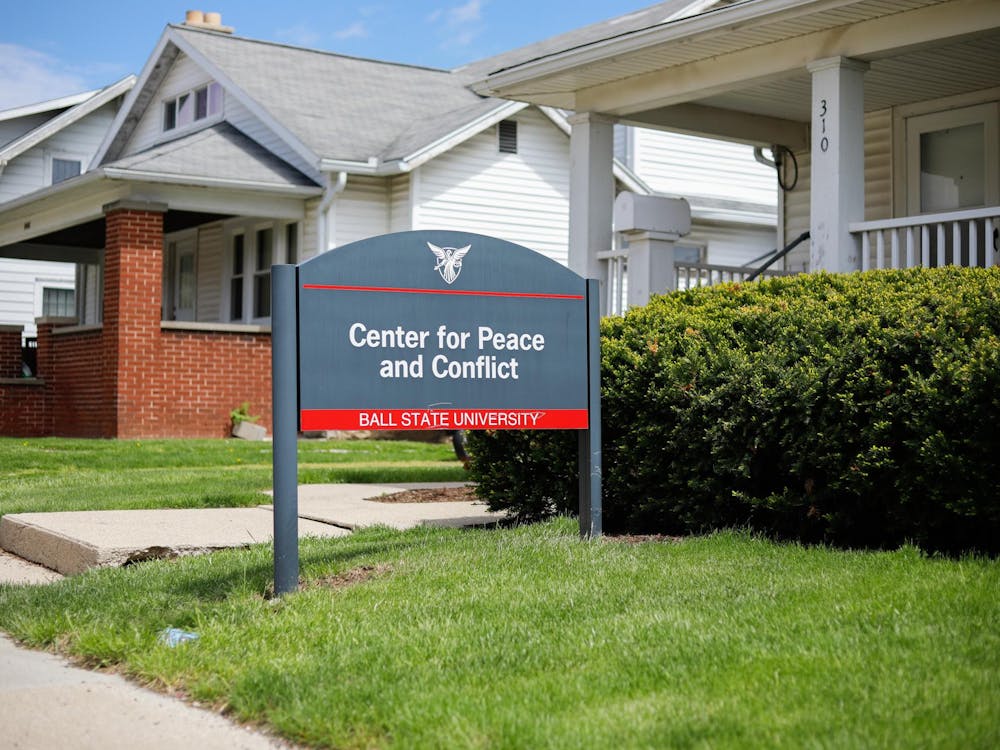CDC recommends all adults and adolescents from ages 13 - 64 be screened for HIV at least once. It also recommends doing HIV/STI testing at least once a year, especially if one is changing sexual partners, having unprotected sex or sharing needles. Peeler’s department recommends Student Health Center, Open Door Health Services and Madison County STD Clinic, for HIV/STI testing.
With bacterial sexually transmitted diseases on the rise, public health experts are recommending young people to exercise caution and undergo regular screening more frequently.
Centers for Disease Control and Prevention, in a recent press release, nearly 2.3 million cases of bacterial STDs — including gonorrhea, syphilis and chlamydia — were diagnosed in 2017.
This is an increase of 200,000 from the previous year, marking the fourth consecutive year of sharp increases in the number of cases diagnosed.
“We know that younger populations are having less sex,” said Elizabeth Peeler, the health educator at Ball State’s Office of Health, Alcohol and Drug Education. “But they tend to have sex using less condoms.”
CDC estimates that youth from ages 15 to 24 make up just over one quarter of the sexually active population, but account for nearly half of new STI cases that occur in the U.S. every year.
According to the report, since 2013, gonorrhea diagnoses has seen a 67 percent overall increase. Moreover, there is an increasing concern about gonorrhea becoming resistant to nearly every class of antibiotics used to treat it.
The report states that primary and secondary syphilis diagnoses increased 76 percent with gay, bisexual and other men who have sex with men (MSM) making up almost 70 percent of the cases.
“I think a lot of it is due to stigma and a lack of knowledge,” Peeler said. “I hear a lot from students who said they didn’t receive any medically accurate sex education.”
The CDC also said that chlamydia remains the most common condition reported to the CDC with 1.7 million cases diagnosed last year alone. Furthermore, females between the ages of 15 to 24 make up 45 percent of those cases.
In a recording from the 2018 STD Prevention Conference included in a press release from the CDC, David Harvey, the executive director of the National Coalition of STD Directors, said that federal STD funding has seen a 40 percent decrease in purchasing power since 2003.
“That means that state and local health departments most of which depend primarily on federal funding to support their STD programs are working with budgets that are effectively of what they were 15 years ago,” he said.
Rebecca Sanders, the Infectious Disease Coordinator at the Madison County STD Clinic in Anderson, said that the clinic has not been affected as it still receives funding from the Indiana State Department of Health.
The CDC also mentions socioeconomic factors like poverty, discrimination and drug use as possible reasons for the steep rise in STDs. Peeler said that all these reasons put together create the perfect storm for a steep increase in STIs.
In order to prevent this, Ball State’s health center provides free HIV testing.
“Last year we got to do free STI testing as well; we’re working on that for this year,” Peeler said. “STI testing at the health center costs upwards of $25.”
Students can also meet with Peeler one on one to ask “more personal questions,” she said.
Peeler’s department also provides free barrier methods to help prevent STIs and unplanned pregnancy including male condoms, female condoms, dental dams, finger cots and lubrication, along with sexual health education information. This can be accessed at the condom shoppe and the express condom shoppe located on campus.
Contact Rohith Rao with comments at rprao@bsu.edu or on Twitter @RaoReports.





